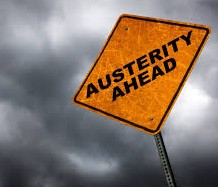
How does austerity look in retrospect? The UK’s recent fiscal squeeze in historical perspective
With the Chancellor’s 2016 Autumn Statement formally burying the previous “austerity” target of achieving a budget surplus by 2020 and instead adopting a new, more expansionary fiscal rule, how does the recent era of fiscal austerity compare with major fiscal squeezes of the past? Christopher Hood and Rozana Himaz put the data into historical perspective and consider the implications for the future. The Recent Fiscal Squeeze and the Longer Term Pattern Since 2010, the UK has been subjected to one of the longest periods of public spending restraint over the last century. But according to our research that episode also seems to fit a long-term pattern of changes in the depth and composition of fiscal squeezes. When we look back at the historical data …

When the Party’s Over: The Politics of Fiscal Squeeze in Perspective
Fiscal austerity, fiscal consolidation and spending cutbacks currently dominate the politics of many of the world’s democracies. Old political arguments are being tested with new battles emerging over whose expectations are to be disappointed and who should be blamed for fiscal squeeze. Can the fiscal travails of the early United States in the 1840s, when half of the states then in the Union had to default over their debts and new unpopular taxes had to be imposed in the middle of an international trade slump, help us draw lessons for the Eurozone debt crisis of the early 2010s? Could cases often presented as ‘poster children’ of successful fiscal consolidation (and at those often portrayed as failures or ‘basket cases’) inform us about the politics of those fiscal squeezes? Can governments that copy ‘good’ examples of fiscal squeeze escape punishment at the polls? A recent conference on the politics of fiscal squeeze explored some these issues and looked at how it has played out in different times and places. It considered in depth nine cases of fiscal squeeze (defined as the political effort that goes into reining in expenditure or raising taxes) and explored what conclusions we can draw for current debates about fiscal squeeze from earlier cases in other democracies.










